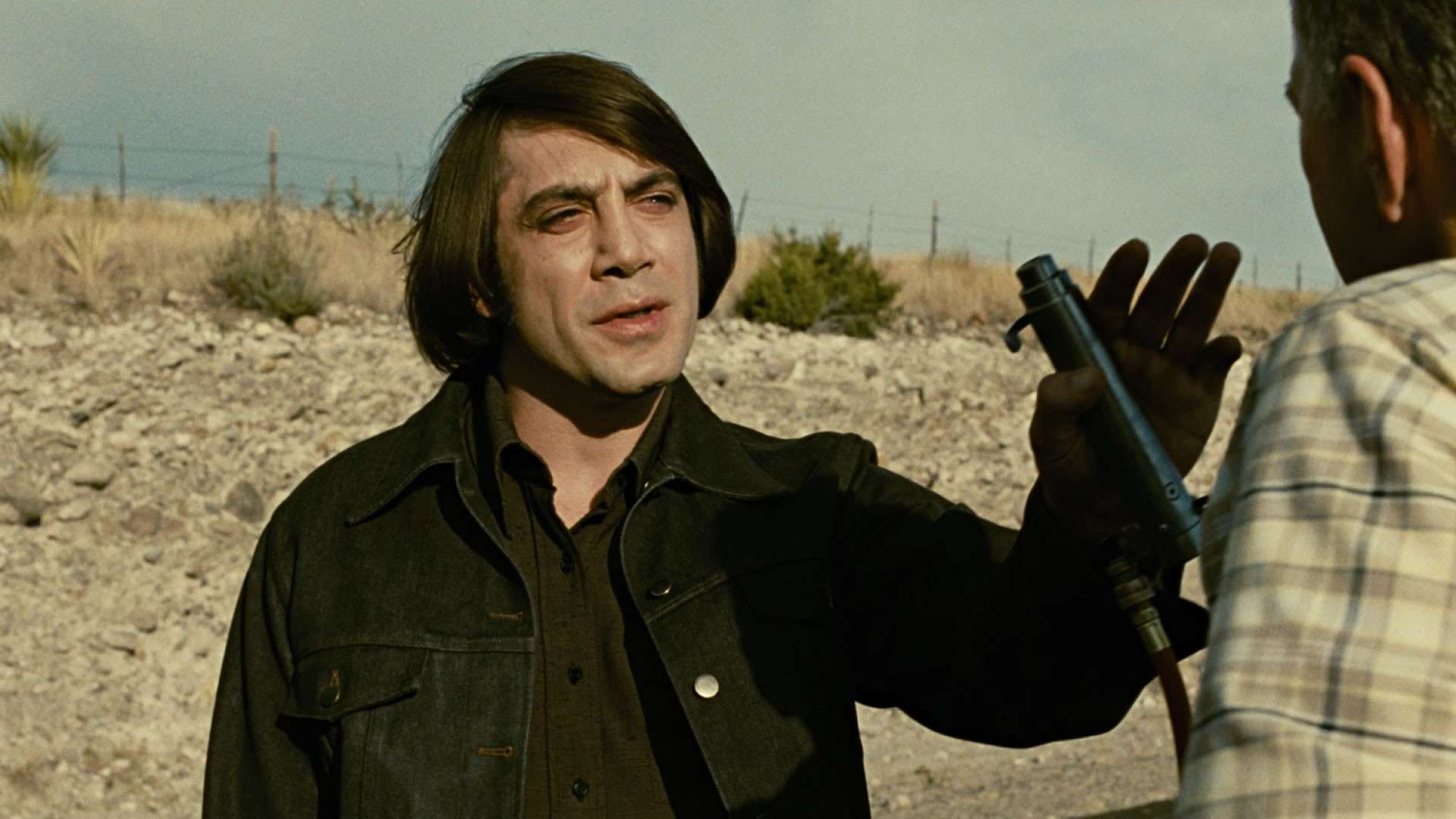
Joel and Ethan Coen were born in 1954 and 1957 respectively in Minnesota. From there, Joel went on to study film at NYU and Ethan to study philosophy (Wittgenstein in particular) at Princeton. After graduation, Joel began work as a production assistant before co-writing his first major film, Blood Simple, with Ethan.
Little did anyone know at that point that they would go on to produce such huge commercial successes as Fargo, The Big Lebowski, O Brother Where Art Thou?, and No Country for Old Men. What led to their commercial success?
Coen films are notoriously hilarious. In almost every film, plans are made, attempted, and foiled over and over again. Their cinematography is always stunning, their casting and the performances that they get from their actors is always impressive, and their dialog is always witty and usually (with the exception of a few notable films) very believable.
More importantly for our purposes, however, Ethan’s philosophical interests are always mixed into the film, both subtly and sometimes a bit more obviously. In what is to follow, I analyze the philosophy in 12 of their films, and try to argue that there are several recurrent themes throughout their films that allow each to build upon the last (typically loneliness, existentialism, and dilemmas of consequentialism). Which Coen film is your favorite?
1. Blood Simple
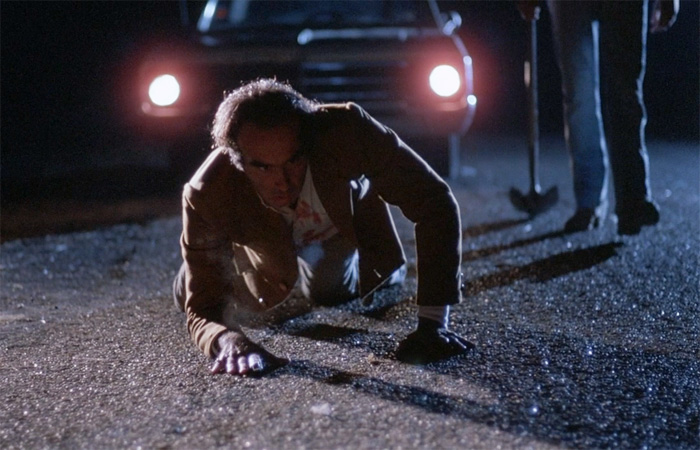
It all started in 1984 with Blood Simple, a not-so-simple tale of adultery and murder that mocks the American Dream, at least in part, while commenting on greed, lust, and even the philosophy behind simplicity.
Blood Simple follows Abby (Frances McDormand), a young woman cheating on her husband with a bartender named Ray (John Getz). She gets caught in the act by a private detective doing reconnaissance for her husband, Julian Marty (Dan Hedaya) He then hires the detective to murder Abby and Ray and things get complicated along the way.
Not nearly as comical as any of the other Coen films, Blood Simple is important to look at because it sets the stage for what is to come in their films and introduces an air of absurdity that the rest of their films will continue to portray.
Despite its sometimes overwhelming simplicity and the lack of usual witty and deep dialog, the film is excellent in its plot-driven philosophical depth. Intended to mock the film-noir genre that came before it, Blood Simple also mocks the American Dream with the words of its detective:
The world is full o’ complainers. An’ the fact is, nothin’ comes with a guarantee. Now I don’t care if you’re the pope of Rome, President of the United States or Man of the Year; somethin’ can all go wrong. Now go on ahead, y’know, complain, tell your problems to your neighbor, ask for help, ‘n watch him fly. Now, in Russia, they got it mapped out so that everyone pulls for everyone else… that’s the theory, anyway. But what I know about is Texas, an’ down here… you’re on your own.
The characters in Blood Simple are definitely “on their own” despite every appeal they make to one another for help once things initially go awry. Motivated by greed, lust, and sometimes just stupidity (another trope that was to be recurrent in Coen films), the step into every (seemingly obvious) trap, causing more and more absurd situations.
2. Raising Arizona

Raising Arizona, their next film, met with less critical success, though it seems to have aged better and is now more appreciated by the general public than Blood Simple. It follows H. I. McDunnough (Nick Cage in one of his better performances) and his kidnapping of Arizona, a quintuplet born into a nearby and wealthy family.
The film is, frankly, downright hilarious, with visual irony and humorous lines spread throughout every scene, but here that doesn’t detract from its depth or seriousness. Its focus is on three main areas: redemption/betterment, consequentialism, and authenticity, all of which are inextricably tied.
H.I. is, as we see, a repeat criminal offender (a “recidivist”, according to local law enforcement) incapable of turning from his wicked ways. Yet, at his core we see that H.I. cares little for crime—if anything he was just addicted to the thrill of it—and wants to lead a full life in the straight and narrow way.
His hopes and quests for redemption and personal betterment, which depend greatly upon Edwina McDunnough (Holly Hunter), often cause him to live in dreams and other worlds. In other words, in running from his past, H.I. often winds up leaving reality for a land of make-believe.
This is what allows him to justify an ends-justify-the-means kidnapping in the first place, as well as to continue to live as a fugitive (in some sense) until he is faced with death and, more importantly, until he recognizes that Arizona, the child he kidnapped, is in serious danger.
Such an existential threat pulls him back to reality and he is able ultimately to make the right decision and to begin the redemptive process, in this case by righting his wrongs and returning Arizona to his real parents. Thanks to this act, he and Edwina have hopes of starting a family of their own in “some distant land like Utah”.
3. Barton Fink
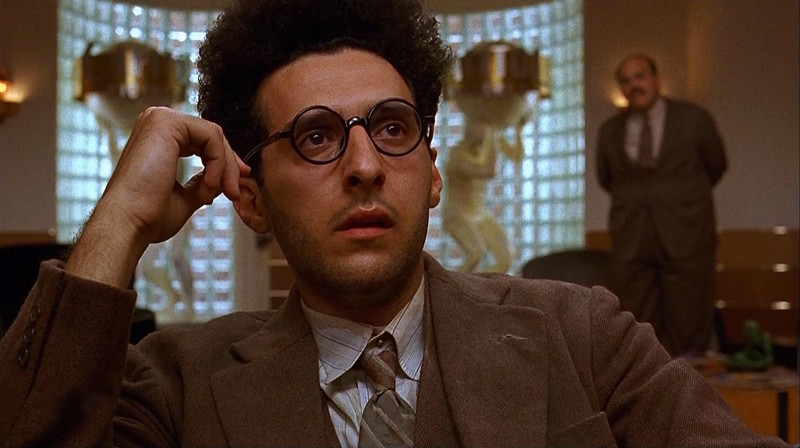
It’s tough to say which of the Coen films is the greatest. O Brother Where Art Thou? and No Country for Old Men are absolute masterpieces. Still, I might have to say that Barton Fink is just as good—it’s definitely one of my all-time favorites (and very highly rated by critics). The film follows Barton (John Turturro), a highly successful playwright from NYC turned screenwriter in 1940s Hollywood.
Barton has been tasked with writing a major wrestling picture. But, while Barton doesn’t know anything about wrestling and admits as much from the start, it quickly becomes apparent that he doesn’t know anything about the common man, which is what he’s famous for writing about. Surrounded by normal people, he refuses to get his head out of the clouds and to listen to their stories.
In short, he refuses to try to understand their lives. One man in particular, Charlie Meadows (John Goodman), tries repeatedly to help Barton out to no avail. It seems straight forward, but one must ask what the point of all of this is?
Barton, an elite bourgeois playwright trying to write for the common man, is portrayed as having a particular kind of arrogance that Hollywood screenwriters were known for at the time (the Coens will return to this with Hail Caesar!).
This is undoubtedly done partially as a critique of Hollywood and its arrogance, and partially as commentary on fascism. Sure, we see the commentary more obviously when the investigators make fun of Barton’s Jewish last name and when Charlie heils Hitler, but really much of the film is subtly about what can happen when one person thinks he is more intelligent and capable than everyone else and thereby thinks his world is all that matters.
Barton refuses to listen to Charlie and to see what is going on despite several tell-tale signs, and he eventually winds up in an awful situation because Charlie has acted rashly. Why? The suggestion is that his actions are thanks to the seductive powers of fascism.
4. Fargo

Fargo is definitely a Coen masterpiece, so successful that it spawned a TV series and that it is commonly alluded to in other films. Based on a true story (supposedly), Fargo tells the tale of Jerry Lundegaard (William Macy), a car salesman who has his wife kidnapped so that he can get hostage money from his wealthy father-in-law.
All goes wrong with this plan, of course, and the ensuing comedic and tragic events lead Marge Gunderson (Frances McDormand), a pregnant cop, on a wild chase that ultimately results in Lundegaard’s capture and conviction.
Undoubtedly, many people have seen Fargo and never really knew what the Coens were trying to say. It has some more obvious points, such as the fact that wrong actions cannot be justified by their outcomes (Jerry Lundeaard’s expected outcome of having his wife kidnapped is a good example here) and even points about reality and idealism (we repeatedly hear from Carl Showalter (Steve Buscemi) that “situations have changed”).
Clearly, planning some manipulative crime is often very, very difficult and things rarely go as they are initially planned. However, Fargo is a great example of loneliness, a theme recurrent throughout all Coen films. Going back, it’s easy to see how Blood Simple, Raising Arizona, and Barton Fink all feature loneliness prominently.
In Fargo however, the loneliness of every other character is contrasted with Marge Gunderson and her blossoming relationship with her husband. The two are truly happy together, which isn’t something you’d expect from viewing their relationship from the surface, and this allows them to lead functional and successful lives without depending upon or manipulating others (like Jerry Lundegaard so often attempts to do). Watch closely—this theme will recur throughout the rest of their films in some fashion or another.
5. The Big Lebowski
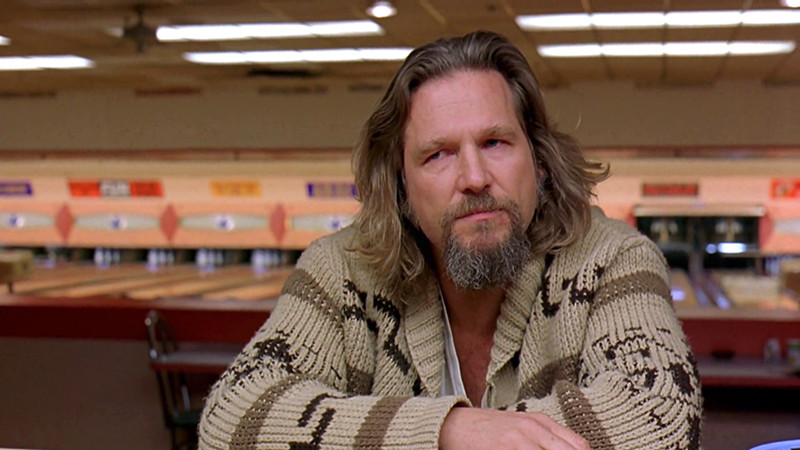
The Big Lebowski is another deeply philosophical film that undeniably changed movie culture. It follows the Dude (Jeff Bridges), an amateur bowler who is harassed by criminals because he shares his name with another, “bigger” Lebowski, a wealthy man whose wife has disappeared. If you ask me, this is already pretty similar to Fargo’s plot.
However, the dialog and situational humor in The Big Lebowski are perhaps even funnier and definitely more versatile (probably somewhat a by-product of not taking place in the frigid mid-west), allowing the brothers Coen to make even more pointed philosophical commentary.
It’d be impossible to analyze every theme in this film (and in pretty much any of their others), but the one worth focusing on now is that of nihilism. The film is filled with accusations of nihilism, as the Dude and his friends accuse their European enemies of being nihilists in scene after scene.
We see near the end, however, that they are not nihilists—after we see the Europeans complaining about fairness and the lengths they went to (in this case, specifically about cutting off a toe) in order to get money from Mr. Lebowski. To this, Walter Shobak (John Goodman) responds “who’s the @#$%ing nihilist here? What are you, a bunch of @#$%ing crybabies?”
The Coens are of course making a statement about nihilism here and how impossible it is to be a nihilist (we even hear the Dude say of nihilism “oh that must be exhausting”), but they’re also attacking the claims that they’re nihilists. More on this theme in the films to come.
6. O Brother Where Art Thou?
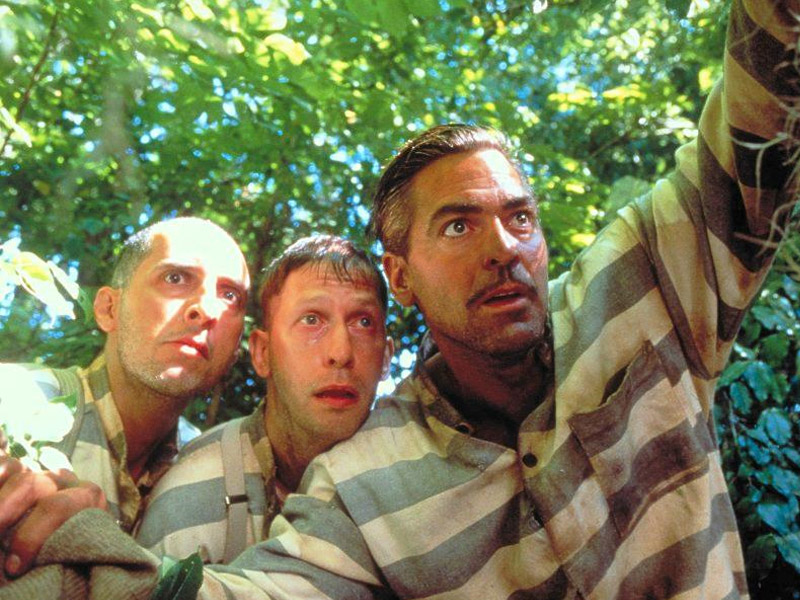
After such successful hits, one might think it would be hard for the Coens to continue to up their game. However, their next film, O Brother Where Art Thou?, was an even bigger success, forever changing the world of folk and bluegrass music, reinvigorating the interest of thousands of Americans in Homer’s Odyssey, and bringing a glimpse of the 1930s rural Mississippi to the big screen.
The film follows Everett (George Clooney), Pete (John Turturro), and Delmar (Tim Blake Nelson), three convicts that have escaped from the chain gang and are trying to return to Everett’s home, where buried treasure awaits them.
What’s this great film about? Like Homer’s writings, there’s a lot to digest in O Brother!, but a few things are obvious on the surface. Clearly, seeking to make a name for oneself by any means necessary doesn’t lead to any personal fulfillment or satisfaction, be it by robbing banks and committing a series of other crimes or by recovering a lost treasure.
Moreover, saving one’s soul or selling it can lead to a fresh outlook on life, but little changes if there’s no real goal that one is striving for (here I speak of Everett, who “remains unaffiliated” and seems to have little ulterior motives). Sometimes the point of the journey is the journey itself and, after hearing the words of the blind seer (Lee Weaver), it’s somewhat convincing that the purpose of this journey and any odyssey is the growth and development of a real hero.
Perhaps the main thrust of the film, however, is that of progress, which we see on a personal level for our three protagonists, and which we see theorized and actualized in the political races taking place in Mississippi at this time.
The progress taking place during the film is overwhelming and, for its characters, it’s indescribable, leaving viewers and characters alike to try to cope with major events and ideas as the film marches on. It seems the Coens are trying to say that progress moves rapidly forward and, despite Everett’s best intentions, there is often no way of going back in time.